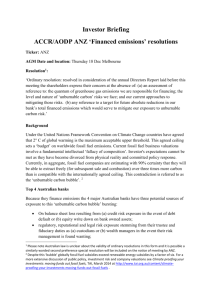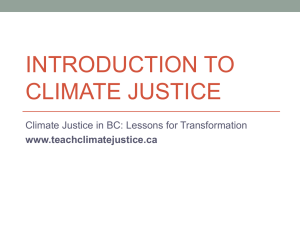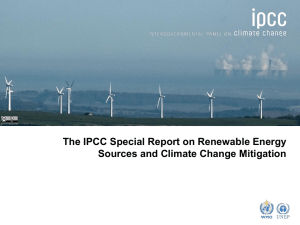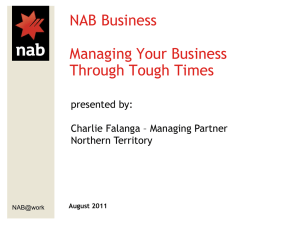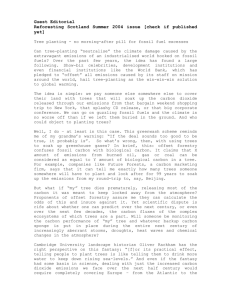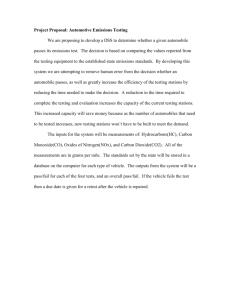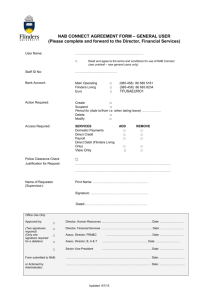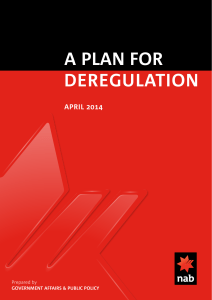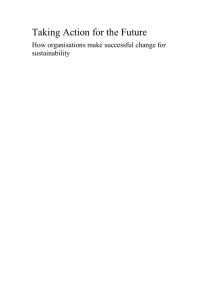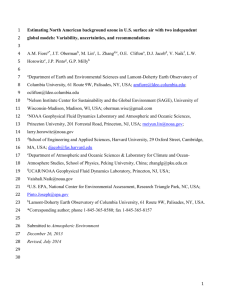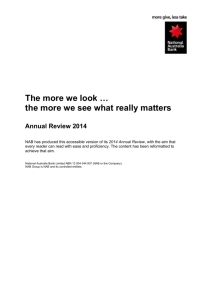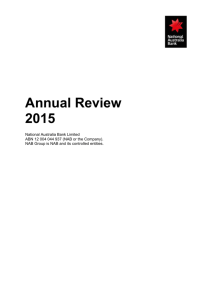ACCR Investor Briefing
advertisement
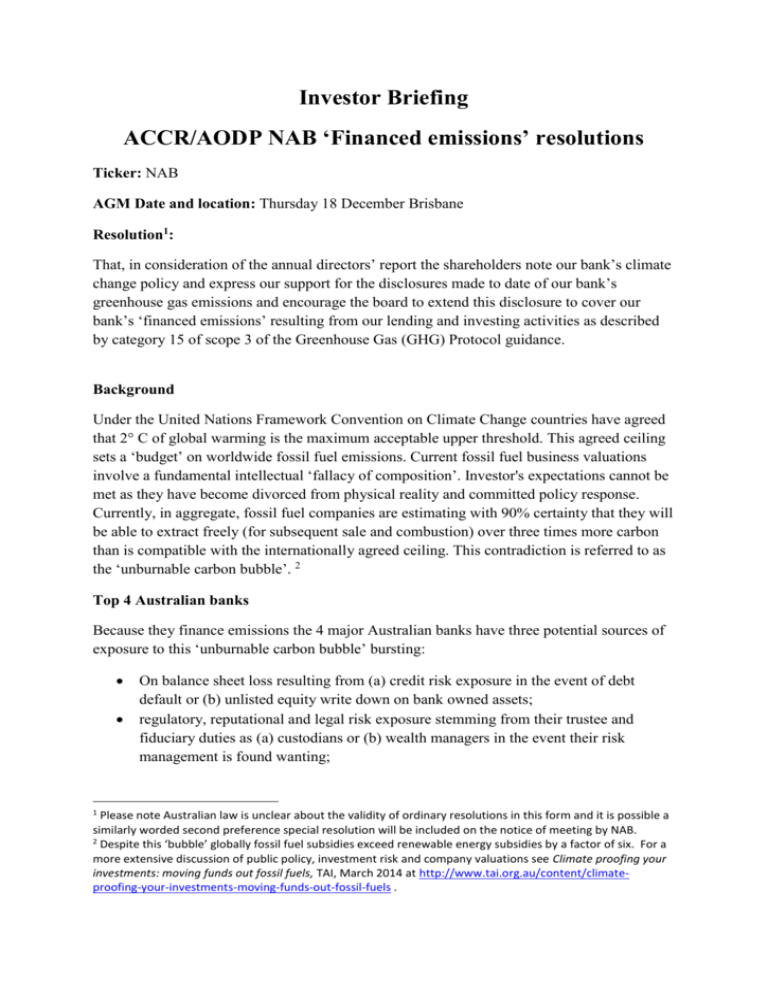
Investor Briefing ACCR/AODP NAB ‘Financed emissions’ resolutions Ticker: NAB AGM Date and location: Thursday 18 December Brisbane Resolution1: That, in consideration of the annual directors’ report the shareholders note our bank’s climate change policy and express our support for the disclosures made to date of our bank’s greenhouse gas emissions and encourage the board to extend this disclosure to cover our bank’s ‘financed emissions’ resulting from our lending and investing activities as described by category 15 of scope 3 of the Greenhouse Gas (GHG) Protocol guidance. Background Under the United Nations Framework Convention on Climate Change countries have agreed that 2° C of global warming is the maximum acceptable upper threshold. This agreed ceiling sets a ‘budget’ on worldwide fossil fuel emissions. Current fossil fuel business valuations involve a fundamental intellectual ‘fallacy of composition’. Investor's expectations cannot be met as they have become divorced from physical reality and committed policy response. Currently, in aggregate, fossil fuel companies are estimating with 90% certainty that they will be able to extract freely (for subsequent sale and combustion) over three times more carbon than is compatible with the internationally agreed ceiling. This contradiction is referred to as the ‘unburnable carbon bubble’. 2 Top 4 Australian banks Because they finance emissions the 4 major Australian banks have three potential sources of exposure to this ‘unburnable carbon bubble’ bursting: 1 On balance sheet loss resulting from (a) credit risk exposure in the event of debt default or (b) unlisted equity write down on bank owned assets; regulatory, reputational and legal risk exposure stemming from their trustee and fiduciary duties as (a) custodians or (b) wealth managers in the event their risk management is found wanting; Please note Australian law is unclear about the validity of ordinary resolutions in this form and it is possible a similarly worded second preference special resolution will be included on the notice of meeting by NAB. 2 Despite this ‘bubble’ globally fossil fuel subsidies exceed renewable energy subsidies by a factor of six. For a more extensive discussion of public policy, investment risk and company valuations see Climate proofing your investments: moving funds out fossil fuels, TAI, March 2014 at http://www.tai.org.au/content/climateproofing-your-investments-moving-funds-out-fossil-fuels . listed equities exposure in the event of significant write-downs of the value of the equity in reserve owners and extraction businesses, fossil fuel generators and companies whose clientele is substantially drawn from these businesses. Write downs affecting the banks could result from equity holdings by their (a) defined benefit super (pension) funds or (b) insurance operations. NAB Using information publicly available and data supplied by CAER/EIRIS3 the ACCR evaluated the ‘post-treatment’ exposure of the top 4 Australian banks to this unburnable carbon risk.4 NAB ranked second least exposed. It had the smallest on balance sheet debt exposure – 13% of 2013 bank equity, an intermediate rating from EIRIS on project finance response, the 2nd smallest wealth management exposure and a good rating from the Asset Owners Disclosure Project (AODP). Earlier in the year resolutions dealing with disclosure of financed emissions attracted close to a one quarter vote in support at the AGM’s of Bank of America and PNC Financial.5 Contact: Caroline Le Couteur, ACCR, + 61 (0) 405 221 587 Julian Poulter, AODP, +44 7518 410496 3 See www.caer.com.au . The research paper ‘Financed emissions, unburnable carbon risk and the major Australian banks’ will be released on October 14. See www.accr.org.au/big_banks . 5 See http://www.ceres.org/investor-network/resolutions . 4
